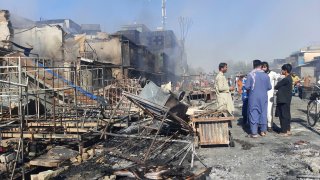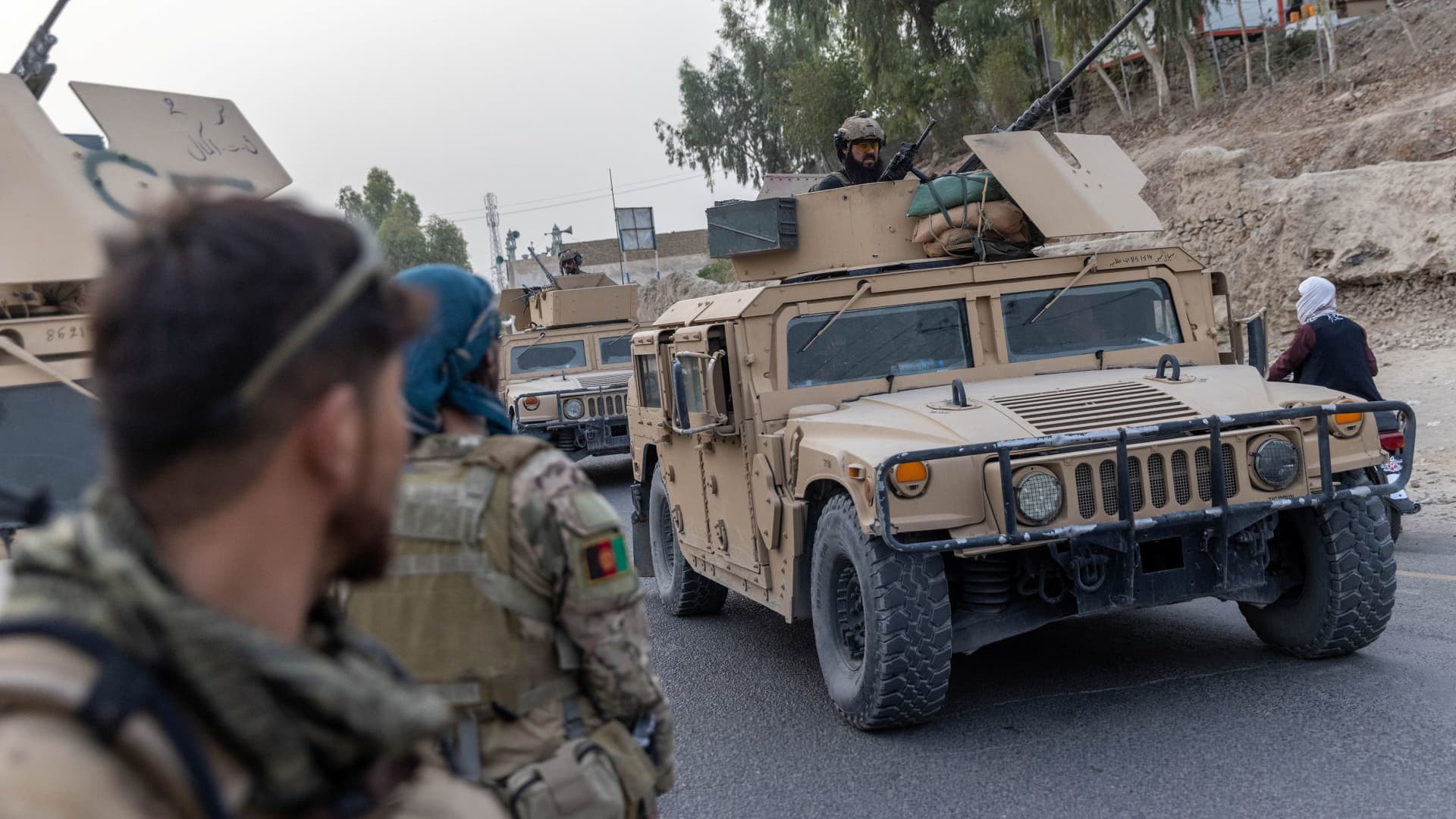
- At least five provincial capitals have fallen to the Taliban since last week.
- The U.S. Embassy in Afghanistan on Saturday instructed all American citizens to leave the country "immediately," adding that they should "not plan to rely on U.S. government flights."
- In April, President Joe Biden ordered the full withdrawal of approximately 3,000 U.S. troops from Afghanistan by Sept. 11, effectively ending America's longest war.

DUBAI, United Arab Emirates — The Taliban continued its relentless takeover of Afghan territory on Monday, following a dramatic weekend that saw the group seize five provincial capitals and prompted the State Department to urge all Americans to leave the war-torn country.
On Sunday, three Afghan cities including the key northern city of Kunduz, a major commercial hub, fell to the Taliban.
Get Connecticut local news, weather forecasts and entertainment stories to your inbox. Sign up for NBC Connecticut newsletters.
The stunning string of battlefield reversals began Friday in the far western Nimroz province, where U.S.-trained Afghan forces defending the capital of Zaranj abandoned their positions.
The other provincial capitals under Taliban control are Sar-e Pul, Shibirghan and Taleqan, according to The Associated Press.
The U.S. Embassy in Afghanistan on Saturday instructed all American citizens to leave the country "immediately," adding that they should "not plan to rely on U.S. government flights." Panic hit a fever pitch after weeks of rapidly intensifying Taliban offensives painted a violent picture of the nation's future ahead of the full U.S. troop withdrawal set to be completed at the end of August.
Money Report
Without further intervention, the impoverished country of 39 million could fall "into a situation of catastrophe so serious that it would have few, if any, parallels in this century," Deborah Lyons, special representative of the United Nations' secretary-general for Afghanistan, told a special session of U.N. Security Council last week.
Lyons said the Afghan war had entered a "deadlier and more destructive phase" and questioned the Taliban's commitment to a political settlement with the Afghan government.
A new United Nations report found an uptick in civilian casualties in Afghanistan beginning in the first few months of 2021. According to the report, more than 2,300 civilian casualties were recorded in May and June, a figure that nearly tops the combined total from the previous four months.
In April, President Joe Biden ordered the full withdrawal of approximately 3,000 U.S. troops from Afghanistan by Sept. 11, effectively ending America's longest war. Last month, Biden gave an updated timeline and said the U.S. military mission in Afghanistan will end by Aug. 31.
"We did not go to Afghanistan to nation build," Biden has said. "It's up to the Afghans to make decisions about the future of their country.
Since Biden's decision to leave the war-weary country, the Pentagon has airlifted more than 980 loads of equipment out of Afghanistan and handed over seven facilities to the Afghan Ministry of Defense, according to the latest update from Central Command.
The Pentagon has said it will maintain airstrikes in support of Afghan forces until all foreign forces exit the country. There are approximately 600 U.S. troops in Afghanistan.
"The United States has increased airstrikes in the support of Afghan forces over the last several days, and we're prepared to continue this heightened level of support in the coming weeks if the Taliban continue their attacks," wrote U.S. Marine Corps Gen. Frank McKenzie in a July 26 statement.
McKenzie, the combatant commander who oversees America's wars in the Middle East, told Afghan President Ashraf Ghani last month that the U.S. would continue to provide airstrikes but made no promise about what will happen after Aug. 31.
-- CNBC's Amanda Macias contributed to this report from Washington.






